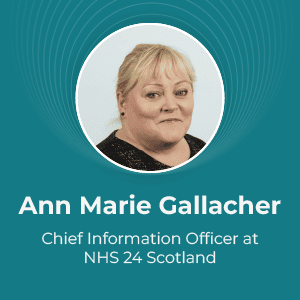
Managing data is no easy task, but while having the right data is a valuable asset, an overflow of meaningless data can prove damaging. Gareth Edwards, Head of Data Science, Softwire, outlines how businesses can stop hoarding data and start harnessing it.
More and more businesses are starting to become aware that data is a major asset, and potentially a very valuable one. But is maximising this value as simple as just hoarding as much data as possible, when you actually don’t have any real way of utilising it? The answer is no and businesses must start to focus their efforts on gaining access to the data that will truly make a difference to business performance.
These three easy steps below show how businesses can stop hoarding data and start harnessing it.
First: spot the opportunities
Why is the business collecting data? Data is only valuable if it helps you to do valuable things, so think about the decisions that are hardest or most impactful for your business. If you had a crystal ball then what would you ask it? “What colour will be in fashion in 3 months time in the UK?”, “Which of my customers are thinking of leaving?” “How can I make sure more customers complete their purchases?” The data you collect should be helping you answer these questions, but too many businesses are spending huge amounts of money storing data that they have no need for or ability to use, and crucially, that won’t help them achieve their goals.
Secondly: understand what is available and whether you actually need it
Before any business starts to strategise how to harness data they must first gain a true understanding of what data is actually available. All too often businesses just don’t know what data they have, they need to undertake an investigative process to expose all the areas where they are currently hoarding data, whether they are using it or not, and why. Only once this exercise has been completed can any business really understand which data sets are of most value and which are being unnecessarily collected and stored. It’s also important to consider the GDPR obligations here – hanging on to old personal data is not just wasteful, but potentially illegal!
Being able to step back and take a big-picture view while doing this is essential. Therefore, it is always worth investing in outside help for this part of the process, whether that’s in the form of a consultant or even a team member outside of your department. This unbiased view can help you cull the hoards of data you might want to hold onto ‘just in case’ when in reality you know you won’t use it.
Lastly: one size does not fit all
Managing data is no easy task and every business has a unique set of opportunities and challenges associated with the data they collect. This is why it’s so important to look into getting expert help to deliver a data management solution that’s really tailored to your specific needs. The data-science revolution that’s currently underway has delivered a huge range of powerful off-the-shelf data tools and platforms, but they are just building blocks, and you need to make sure that they’re deployed in a way that really works for your business. Having a tailored system means that you can ensure you are getting the best ROI as well as a more consultative approach along the way.
And let’s not forget the cyber threat that looms over us all. Whilst you can get hacked via any size of data pool, the more unprotected data you are hoarding the more open you are to a cyber attack, and small businesses are amongst some of the worst affected. Taking the time to properly understand and shape your data solution means you can not only limit the data you hold, but also put a secure infrastructure in place that can protect you from those unexpected hacks.
This article was published in:



